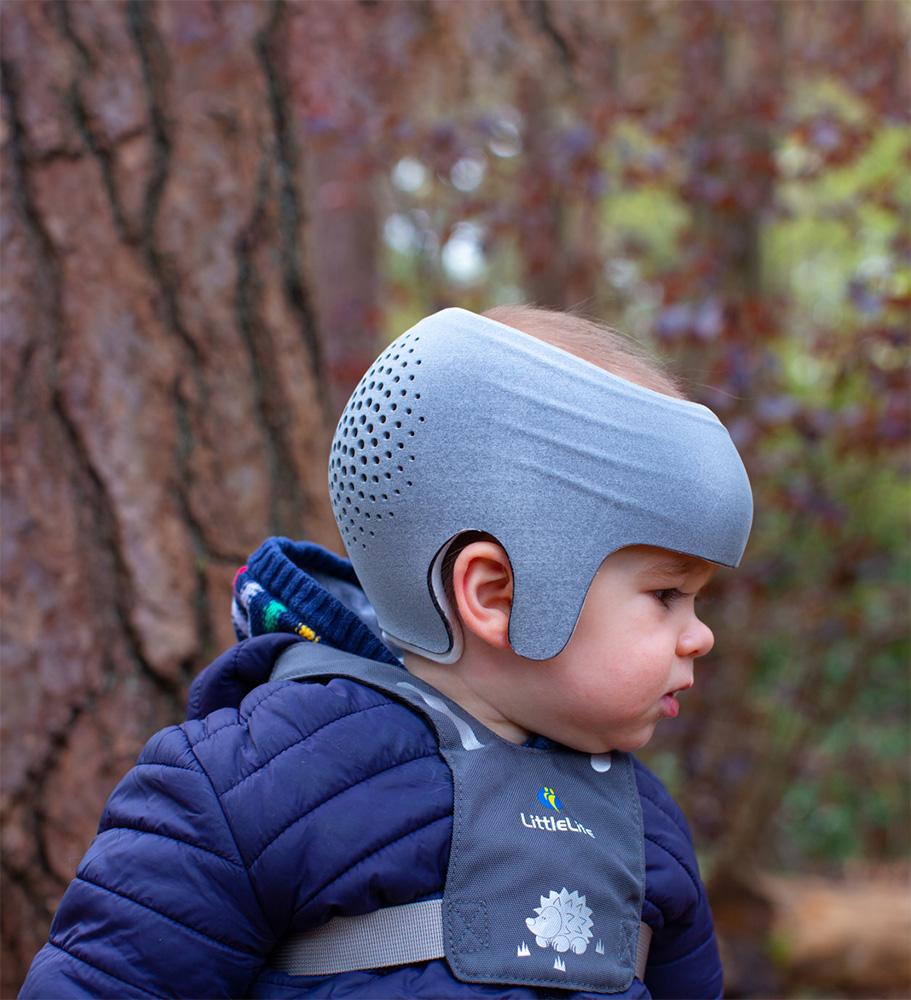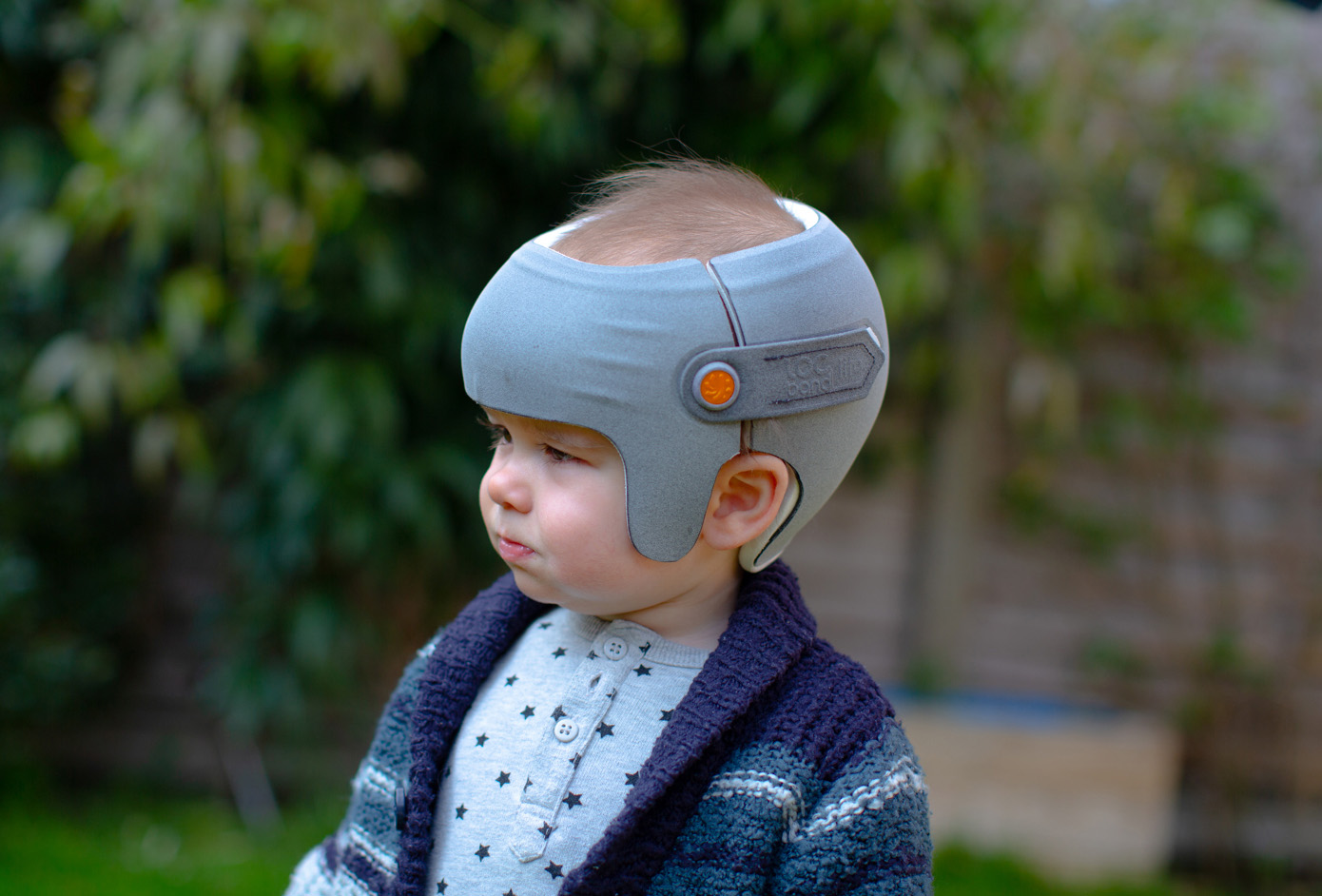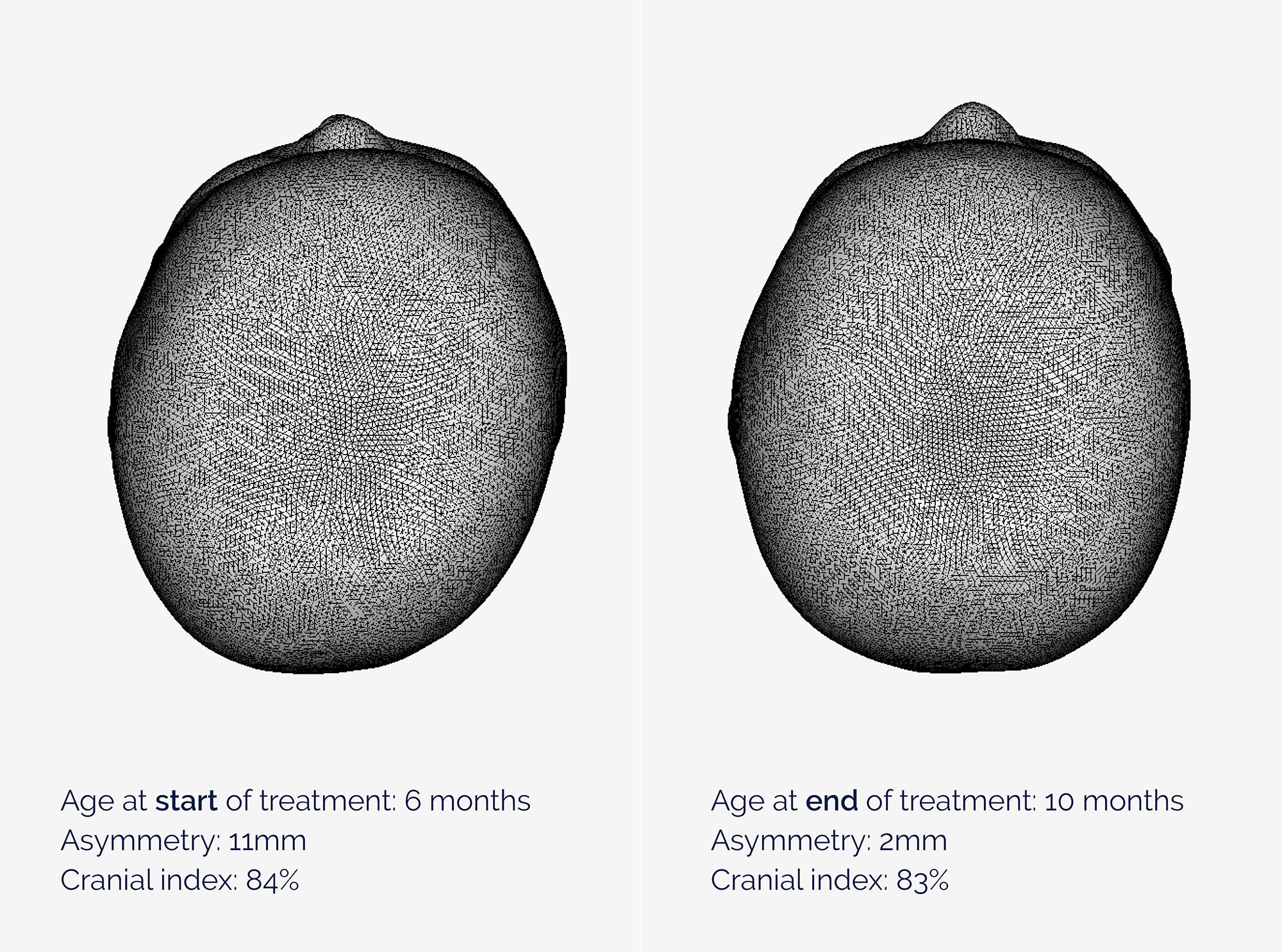
The LOCBand Lite helmet
03 July 2024
Freddie’s mother, Elizabeth, first noticed that Freddie had a flat spot on one side of his head when he was about three months old. It was not present at birth. Freddie’s condition was a very typical presentation of positional plagiocephaly or flat head syndrome as he favoured sleeping with his head turned to the right and that is exactly where the flattening was. A baby’s skull is made of several plates of bone that are not tightly joined together when we are born, so they are soft enough to be moulded by external pressure.

The LOCBand Lite is 3D printed, more streamlined and less bulky than traditional cranial remoulding helmets
The LOCband is non-invasive and works by applying gentle, constant pressure over the areas of the baby’s skull that are most prominent while allowing unrestricted growth over the flattened areas. The band consists of a soft foam layer inside a thermoplastic shell. As the baby grows, the band will be adjusted frequently to gently guide the skull into a more symmetrical shape.
The optimum age for treatment is between four and seven months.
This is because the skull is most malleable at this age and improvements to head shape tend to take less time and are more dramatic. That is not to say that helmet therapy should be ruled out if the baby is older than seven months. Routinely, babies up to the age of 16 months can be treated very successfully.
The cut off age is around 18 months when the fontanelles (soft spots on the head) are no longer malleable. As babies grow and develop at different rates, it is always worth checking if you are not sure. There have been cases where a baby’s fontanelles have not fused yet by the age of 18 months, who have achieved successful, but less-marked results with cranial remoulding therapy.
Yes - All babies that have completed their course of treatment with us have achieved a measurable improvement in head shape. However, you don’t have to take our word for it.
Recent independent research conducted by a University Hospital in Germany has endorsed the treatment for babies with moderate or severe plagiocephaly.
A larger, retrospective study has just been published that found complete correction was achieved in 94.4% of babies treated with helmet therapy.
The results were conclusive: repositioning achieved acceptable correction in 77.1% of cases, but 15.8% were moved onto helmet therapy because re-positioning was not working. Meanwhile, 94.4% of the infants who started in the helmet-treated group achieved full correction, as did 96.1% of those who were transferred from the repositioning group into the helmet-treated group.
Further information can be found on our Plagiocephaly Research page.
This is very much dependent on how fast your baby is growing. The faster the growth, the more frequently your baby will be seen so that the helmet can be adjusted. In general, reviews will happen at two to four-week intervals.
The price of treatment covers:
The probable cause of Freddie’s preferred sleeping pattern was a compressed nerve in his neck which was diagnosed by an osteopath when he was four months old.
Freddie’s parents tried repositioning, but Freddie just liked sleeping the way he did. By six months, Freddie’s parents were becoming more concerned about the flatness on the right-hand side of his head, and his eyes did not seem to be level anymore. It was their osteopath who recommended they seek advice from the London Orthotic Consultancy.
Freddie was seen by Jo Drake, LOC’s clinical lead for craniosynostosis, in November last year. Head measurements were taken. Freddie’s cranial vault asymmetry at 11mm was at the top of the moderate range, a normal to mild asymmetry would be 0-6mm asymmetry. LOC recommends cranial remoulding therapy with its LOCband Lite for babies with moderate or severe plagiocephaly.
Elizabeth comments: “We decided to go ahead with treatment, if it’s fixable, let’s fix it. We were really impressed with Jo, very clear, calm and confident that Freddie’s head shape would be improved. It took a few days for Freddie to get used to the helmet because he had a habit of rubbing his head against the bars of his cot when settling down to sleep and of course he could no longer to do that with a helmet on. He soon got over that.
He was in his helmet for just four months. We had regular reviews and I was impressed that Jo even took account of our wish to be seen in the middle of the day to fit in with travel time and Freddie’s nap times. We are so pleased we decided to go ahead with the treatment, the improvement in head shape has been dramatic. We would not have been able to forgive ourselves if we had let it be. No wonky head now.”

Freddie's head scans show an asymmetry value of 11mm before cranial remoulding therapy, and after with a value of 2mm
At discharge Freddie’s cranial vault asymmetry had reduced to 2mm, almost totally symmetrical.
If you’re worried about your baby’s head shape, get in touch today. You can fill out our free flat head diagnosis form or contact us to book a free consultation with an orthotist.